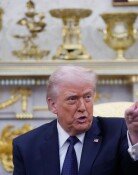Hwang Could be Overtaken by Schatten if Hwangs Researchers Stay
Hwang Could be Overtaken by Schatten if Hwangs Researchers Stay
Posted December. 09, 2005 07:38,
All eyes are on the future path of three researchers of Dr. Hwang Woo-suks team who have been dispatched to Hwangs one-time U.S. collaborator Professor Gerald Schattens lab at the University of Pittsburgh. Some concerns have been raised that the researchers might apply for the U.S. citizenship and leak Hwangs secret research techniques.
The three researchers played a pivotal role in the thesis Hwangs research team published in the U.S. journal Science in 2004 and 2005. With severed cooperation between Hwangs team and Schatten, their stay in the U.S. could result in the two competing against each other.
Experts in removing egg nucleus-
The three researchers are Park Eul-soon, who earned her masters degree at Seoul National Universitys Veterinary College, Park Jong-hyuk of MizMedi Hospital, and Dr. Kim Sun-jong. Park Eul-soon developed a method to remove a nucleus intact from an egg and is a co-author of the thesis published in Science in February 2004. After getting her masters, she was sent to work with Schattens research team last year. Previously, Hwangs research team used the conventional way of piercing a small tube into an egg to remove nucleus. This method was not very effective as it destroyed other parts of the egg during the procedure. As a result, the egg was hard to fuse with somatic cells.
Parks new method deals with that problem as it makes a small hole in the egg, then adds pressure to squeeze the nucleus out the egg. It has been known that she played a major role when Schattens research team made the worlds first cloned monkey embryo at the end of last year.
The other two researchers are experts in extracting and cultivating stem cells. The chief director of MizMedi Hospital, Noh Sung-il, said that the two researchers extracted stem cells from cloned embryos, cultivated those cells for Hwangs research, and that they are the most trusted researchers for their skills. The two are the co-authors of Hwangs theses published in Science in 2004 and 2005.
As some speculate some of those researchers are considering applying for U.S. citizenship, there are concerns over the possibility of Hwangs research team leaking key skills. However, one official from the research team said that although it is true that Park developed original technology, this has already spread among other researchers in Korea.
Collaborators may become rivals-
There are a number of researchers as talented as or who even surpass Park in Korea. So I would not worry about leaking technology even if those researchers obtain U.S. citizenship, he added. Noh also stated that while Park Jong-hyuk and Kim Sun-jong are no doubt outstanding experts in this field, many experts like them have been produced with more active research in the field.
I do not know whether they applied for the citizenship or not. They might stay in the U.S. in case they do not find work in Korea, but that is entirely up to them, said Noh.
Nevertheless, it is worrying that if the researchers choose to stay on Schattens team, Hwangs team might be overtaken by its U.S. counterpart in the field of cloned embryonic stem cells.
wolfkim@donga.com sohyung@donga.com







